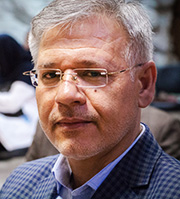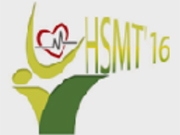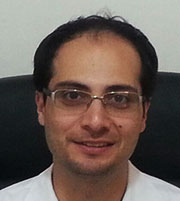-
Details
-
Written by Somayeh Delavari, Hamed Zandian, Satar Rezaei, Mehdi Moradinazar, Sajad Delavari, Ali Saber, Razieh Fallah
-
Parent Category: Year 2016, Volume 8
-
Category: Volume 8, Issue 10, October 2016
-
Hits: 4924
Introduction: Life expectancy at birth (LEB) is closely associated with the degree of economic and social development in developed and developing countries. This study aimed to examine the socioeconomic factors affecting LEB in Iran from 1985 to 2013.
Methods: Time series analysis was used to examine the effects of key explanatory factors (GDP per capita, number of doctors per 10,000 population, degree of urbanization, food availability, CO2 emission, total fertility rate, inflation rate, and literacy rate) on LEB in Iran from 1985 to 2013. Study data were retrieved from the Central Bank of Iran (CBI), Iranian Statistical Center (ISC), and World Bank. Augmented Dickey Fuller (ADF) and Banergy, Dolado, and Master (BDM) tests, Engle Granger approach, and an ordinary least-square (OLS) model were used to achieve the aim of the study. Data analysis was performed by Stata V.12 software.
Results: Our findings indicated that GDP per capita (p=0.003), number of doctors per 10,000 population (p=0.036), literacy rate (p=0.0001), and food availability (p=0.0001) have a positive and significant statistically effect on LEB. The relationship between total fertility rate and LEB was negative and significant (p=0.023). In addition, the effect of degree urbanization (p=0.811), CO2 emission (p=0.185), and inflation rate (p=0.579) on LEB were not significant.
Conclusion: GDP per capita, number of doctors per 10,000 population, food availability, literacy rate, and total fertility were identified as the main factors affecting life expectancy in Iran. The study, however, suggests that life expectancy in Iran could be improved if attention is given to factors that reside outside of the health sector.
Keywords: Life expectancy, Time series, Socio-economic factors, Iran
Air Force 1 FoampositeNike
The most recent editorial (June 2021)
Ethics of Publishing Case Reports: Do We Need Ethics Approval and Patient Consent?
An editorial by Dr. Mehrdad Jalalian
Read more.

The worldwide spread of COVID-19 as an emerging, rapidly evolving situation, and the dramatic need of urgent medicine or vaccine, has rapidly brought new hypotheses for pathophysiology and potential medicinal agents to the fore. It is crucial that the research community provide a way to publish this research in a timely manner.
To contribute to this important public health discussion, the Electronic Physician Journal is excited to announce a fast-track procedure to help researchers publish their articles on COVID-19 related subjects that fall under the broad definition of public health, internal medicine, and pharmacology. We are especially welcome to all hypotheses about the pathological basis of the COVID-19 infection and the possible characteristics of potential medicine and vaccine. Submit your manuscript here
Our previous editorial (June 2020)
Lessons from COVID-19 pandemic and the Morocco’s success story.
An editorial by Dr. Benksim Abdelhafid (Morocco)
Read more.

The 6th World Conference on Research Integrity (WCRI) is to be held on June 2-5, 2019 in Hong Kong.
The WCRI is the largest and most significant international conference on research integrity. Since the first conference in Lisbon in 2007, it has given researchers, teachers, funding agencies, government officials, journal editors, senior administrators, and research students opportunities to share experiences and to discuss and promote integrity in research. Read more:

TDR Clinical Research and Development Fellowships
Call for applications
Deadline for submission: 7 March 2019, 16:00 (GMT)
TDR provides fellowships for early- to mid-career researchers and clinical trial staff (e.g. clinicians, pharmacists, medical statisticians, data managers, other health researchers) in low- and middle-income countries (LMICs) to learn how to conduct clinical trials. Read more:

Meta-Analysis Workshops in New York, USA, and London, UK, in April and May 2019
Don't miss this exceptional opportunity to learn how to perform and report a Meta-analysis correctly. Two Meta-analysis workshops are organized in April and May 2019 by Dr. Michael Borenstein in New York, USA (April 08-10, 2019) and London, UK (May 27-29).

About the Instructor
Dr. Michael Borenstein, one of the authors of Introduction to Meta-Analysis, is widely recognized for his ability to make statistical concepts accessible to researchers as well as to statisticians. He has lectured widely on meta-analysis, including at the NIH, CDC, and FDA. Read more:

























